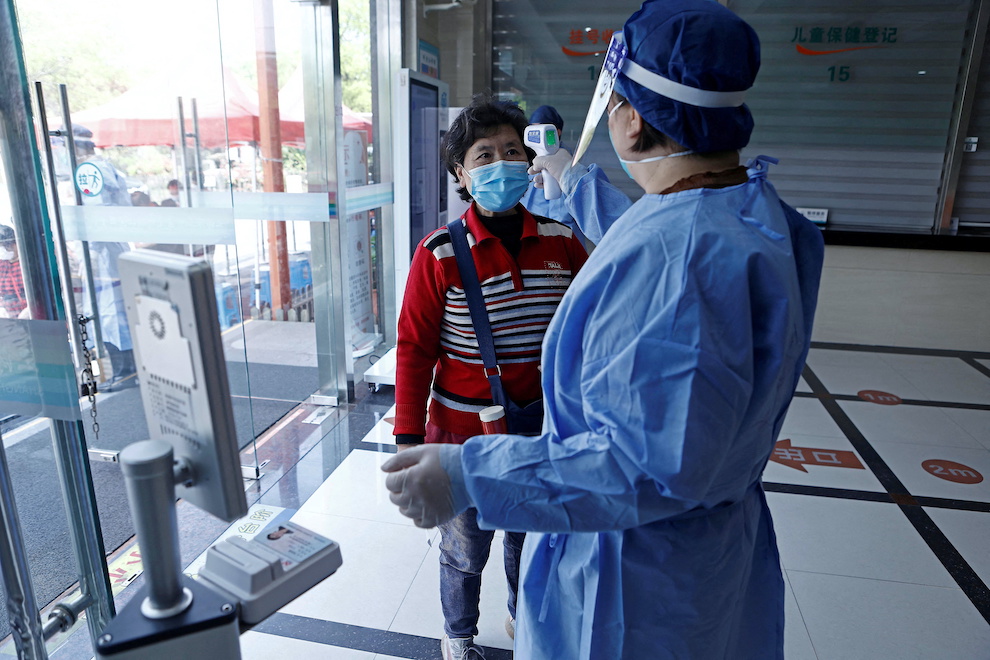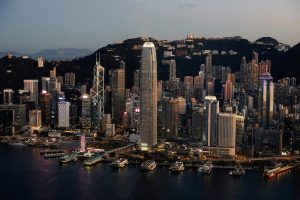After two months of a tortuous Covid-19 lockdown, China’s biggest commercial hub Shanghai is progressing slowly toward a reopening next Wednesday – June 1.
And there was good news also from officials in Beijing, who said they were planning to ease social curbs as new cases have trended lower for six days, with no fresh infections outside of quarantine areas.
The outbreak that began on April 22 is “effectively under control”, a Beijing government spokesman told a news conference.
Starting on Sunday, shopping malls, libraries, museums, theatres and gyms will be allowed to reopen, with limits on numbers of people, in the eight of Beijing’s 16 districts that have seen no community cases for seven consecutive days.
Two of the districts will end work-from-home rules, while public transport will largely resume in three districts including Chaoyang, the city’s largest. Still, restaurant dining remains banned city-wide.
ALSO SEE: In Numbers: The Economic Impact of Shanghai’s Covid Lockdowns
‘Stay Vigilant’
In Shanghai, officials were still calling on Saturday for the city’s 25 million citizens to remain vigilant, despite most the fact most areas are now classed as low-risk.
More businesses have been allowed to reopen and an increasing number of people permitted outside their homes but most shops are still limited to making deliveries.
“Wear masks in public, no gathering and keep social distance,” Zhao Dandan, deputy director of the Shanghai Municipal Health Commission, told a daily news conference.
The two-month lockdown of China‘s largest and most cosmopolitan city has frustrated and infuriated residents, hundreds of thousands of whom have been quarantined in often crowded central facilities. Many residents struggled to access sufficient food or medical care during its early weeks.
Videos on social media from Friday night showed revellers including many foreigners drinking and dancing in the street in a central area of the city, interrupted by police telling them to go home.
Another video showed a group in the street singing an emotional anthem from 1985 called “Tomorrow will be better,” accompanied by a keyboard player. The police arrive, allowing the song to finish before asking them to go home, prompting online praise for the show of restraint.
Case Numbers Low, Economic Impact High
Officials from the National Health Commission reported 362 new coronavirus cases on the mainland from Friday May 27. That compares with 444 new cases a day earlier. There were no new deaths, leaving the death toll at 5,226. As of May 27, mainland China had confirmed 223,933 cases.
While nationwide case numbers are improving, China‘s strict adherence to its zero-Covid policy has devastated the world’s second-largest economy and rattled global supply chains, alarming investors worried about the lack of a roadmap for exiting from what has been a signature policy of President Xi Jinping.
The economic impact was evident in data released on Friday showing that April profits at industrial firms fell an annual 8.5%, their fastest drop in two years, with high raw material prices and supply chain chaos caused by Covid-19 curbs squeezing margins and disrupting factory activity.
China‘s approach, which Beijing says is needed to save lives and prevent its health system from being overwhelmed, has been challenged by the hard-to-contain Omicron variant. Much of the world, by contrast, is trying to get on with normal life despite the continued spread of coronavirus.
The conflict between vanquishing the spread of Covid and supporting the economy comes amid a politically sensitive year, with Xi expected to secure an unprecedented third leadership term at a congress of the ruling Communist Party in the autumn.
During an emergency meeting on Wednesday, Premier Li Keqiang acknowledged the weak growth and said economic difficulties in some aspects were worse than in 2020 after China was initially hit by Covid-19. His remarks prompted market expectations of further measures to support the economy.
Small Steps
On Friday, Shanghai’s suburban Fengxian district cancelled a requirement for residents to have a pass to go out.
The state-run Shanghai Securities News reported modest steps towards return to normal for the financial sector, with the more than 10,000 bankers and traders who have been living and working in their offices since the start of lockdown gradually returning home.
China Citic Bank’s Shanghai branch plans to send nearly 30 staff to its office tower by Wednesday while 11 staff members at Bank of Shanghai returned to work this week at its office headquarters, the newspaper reported. More than 100 bank outlets had resumed operations as of Friday, it said.
While Shanghai officials reported one community-level case in its Songjiang district, they expressed confidence in the measures they were taking to trace and control the infection chain.
“If these measures are implemented effectively, we can prevent a rebound of the epidemic even if there are sporadic cases, so don’t worry,” said Sun Xiaodong, deputy director of the Shanghai Center for Disease Control and Prevention.
• Reuters with additional editing by Jim Pollard
Note: The headline was amended and details updated in this report on May 28, 2022.
ALSO on AF:
Covid Curbs Drag Down China’s Industrial Profits in April
China Covid Curbs Will Harm its Popularity for Years: AmCham
WHO Chief Censored in China After Urging Switch From Zero-Covid
























